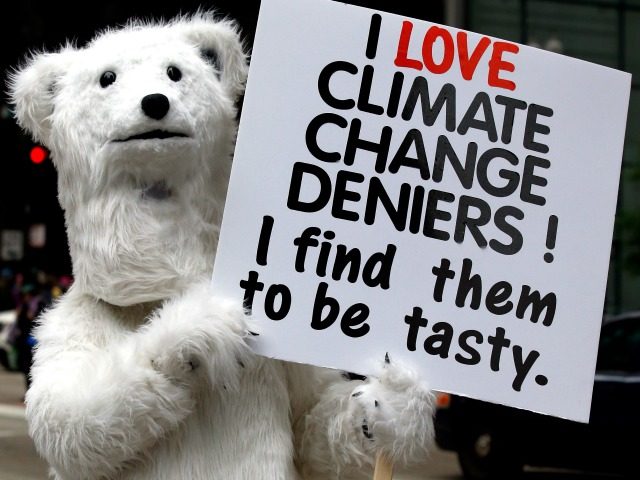Following on last week’s World Ocean Summit in Mexico, the Wall Street Journal published a piece Monday ridiculing apocalyptic scenarios of an overheated future with disastrous impact on the human population as the product of “laughably bad economics.”
One study, writes Oren Cass, senior fellow at the Manhattan Institute, projects a drop of 20 percent in world GDP by the year 2100, but gigantic economic growth for countries like Iceland and Mongolia. Iceland, in fact, will allegedly reach annual per capita income of $1.5 million by 2100, a conclusion that Cass considers “as preposterous as it is stunning.”
The results of such studies—like much of climate science itself—come from computer models that attempt to extrapolate future costs from present realities that may or may not have anything to do with the state of things 100 years from now. Also like climate science, these economic forecasts try to take into account a nearly infinite number of variables, which makes the likelihood of accuracy almost zero.
By looking at actual correlations between weather conditions and things like mortality and economic growth, economists try to translate temperature forecasts into human impacts. The resulting doomsday predictions of a dystopian climate future come from “absurd estimates,” Cass writes, which proceed mostly from “laughably bad economics.”
One major flaw in such projections is the failure to factor in “human society’s capacity for adaptation,” which is perhaps the most significant variable of all. This makes sense on the one hand, because it is essentially impossible to predict. On the other hand, ignoring it renders all forecasts basically null and void.
For example, using data from 1968–2002 one study found a high correlation between very hot days and mortality. Later, however, the same researchers conducted a second study examining how this relationship had changed over time and found that the mortality rate on hot days had declined precipitously due to increased use of air-conditioning, which had “positioned the United States to be well adapted to the high-temperature-related mortality impacts of climate change.”
Highlighting the critical importance of human adaptability corresponds to the musings of other enlightened thinkers who have reached similar conclusions.
An article last week in Scientific American explored the analysis of two scholars who highlighted humanity’s extraordinary ability to adapt to new situations as they evolve, particularly—as in the case of “climate change”—when they take place slowly over time.
“Throughout history humans not only weathered climate crises but deliberately flung ourselves into them as we migrated away from our African homeland into deserts, mountains, floodplains and taiga,” writes Will Boisvert, before chronicling just one example of this: the Inuit’s remarkable adaptation to a severely hostile environment.
Thus, the current climate change “crisis” is merely the “latest episode in humanity’s ongoing conquest of extreme climates,” which will likewise “amount to just another problem in economic and technological development, and a middling-scale one at that,” he writes.
While human adaptability and inventiveness might seem to be just one piece in the climate puzzle, it may be the most important piece of all.
“This question of adaptation, and how to account for a future different from the present, is not an esoteric detail for science and economics,” Cass writes.
“It is fundamental to understanding the challenge posed by climate change.”
Follow Thomas D. Williams on Twitter Follow @tdwilliamsrome

COMMENTS
Please let us know if you're having issues with commenting.